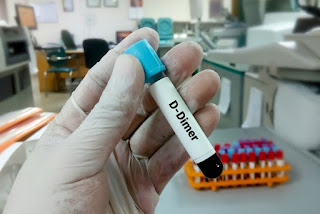D-Dimer Test: Everything You Need to Know
What is the D-Dimer Test?
The D-dimer test is a blood test suggested by the doctor to determine the amount of D-dimer protein in the body that is usually produced to break down blood clots. When D-dimer levels are very low in the body, they can go undetected and can only be identified if the human body forms and breaks down a significant amount of blood clots. D-dimer testing is part of diagnosing or monitoring blood clotting problems.
The human body forms a blood clot when any blood vessel is damaged due to injury, restricted blood flow, or atherosclerosis.
Why a Person Needs a D-Dimer Test?
A D-dimer test is recommended for a person when the doctor wants to know if the patient has blood clotting problems. Some of the blood clotting problems that may exist in a person are:
Deep vein thrombosis
Pulmonary embolism
Blood Coagulation
Disseminated intravascular coagulation
The D-dimer test is also recommended by the medical practitioner as part of ongoing treatment.

How is D-Dimer Test Performed?
Usually, there is no special preparation needed for the d-dimer test. When the doctor suggests a person undergo a d-dimer test, they should book this medical test in a good medical laboratory. Nowadays, some of the best medical labs provide at-home blood sample collection. One can book a d-dimer test at affordable prices online from a well-known laboratory. They send their phlebotomist, who draws blood from the person’s vein, collects it in a sterilized bottle, and takes it for testing in the lab. The test is performed by lab professionals.



YEs
ReplyDeleteThis comment has been removed by the author.
ReplyDelete